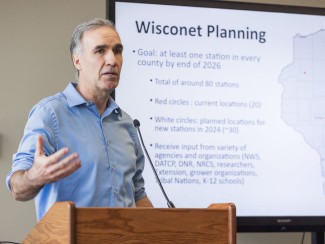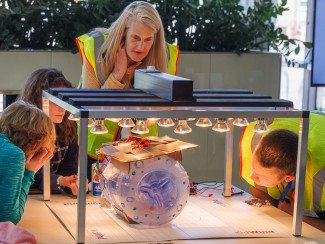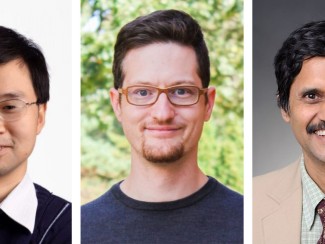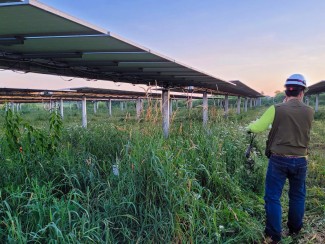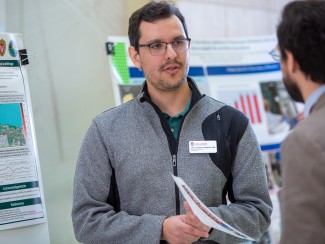On Friday, September 20, the UW-Madison Department of Geoscience Weeks Lecture Series hosted Dr. Ellen D. Williams of British/Beyond Petroleum. Williams is the energy giant's Chief Scientist, and the topic of her talk was "A Scientist's View of Research for Sustainable Energy."
With a chemistry PhD from CalTech, a prestigious research and teaching career at the University of Maryland, and membership in the National Academy of Sciences, Williams is more than qualified to speak on the topic of sustainable energy research. At BP, her role is to support the basic science driving BP's technology programs, and to research and assess strategic technology issues.
"Energy demand is rising globally, and we must meet that increased demand in a way that's affordable, reliable, secure and sustainable," said Williams at the beginning of her talk, referring to the demands that global energy consumption places on natural resources--both renewable and non-renewable.
Throughout her talk, Williams' treatment of energy issues reflected the balance of creative technological innovation and economic practicality that will ultimately underpin a secure energy future. Describing BP's role in researching and producing energy from both renewable and petroleum-based sources, she pointed out that even if renewable energy use increases dramatically in the coming years, oil and gas will still have major roles to play.
Energy-related water, land and mineral constraints can be managed sustainably; it just requires careful technology and governance decisions.
Ellen D. Williams
Given the well-known limitations of fossil resources on Earth, Williams told the audience about low-salinity enhanced oil recovery, or LoSal EOR, one of BP's strategies for enhancing the efficiency of current oil extraction techniques. She also described the company's work with second-generation biofuels, such as lignocellulosic ethanol, explaining how researchers are using "outside-the-box" thinking to develop yeast hybrids that can more efficiently ferment sugars to fuel.
Finally, Williams devoted time to talking about the BP-funded Energy and Sustainability Challenge, a consortium devoted to investigating "the effects of natural resource scarcities on patterns of energy supply and consumption." She touched on the ways in which scale, complexity and connectivity influence natural resource use, emphasizing in particular how research approaches, political and economic constraints, and infrastructure decisions can affect access to fresh water, land, and key materials needed for energy production.
"Energy-related water, land and mineral constraints can be managed sustainably; it just requires careful technology and governance decisions," Williams concluded.
"The future energy mix depends on human economic choices regarding security, climate change, etc. A sound technical basis of understanding is essential for making sound decisions, and creative applications of existing technologies will help answer the hard questions."

